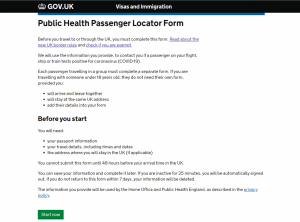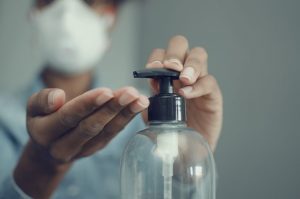Everything you need to know about quarantining when returning from a holiday
Travellers entering the UK from certain countries are required to enter quarantine for 14 days upon arrival. This is a measure that came into effect from Saturday 15th August and it applies to both foreigners visiting the UK and British holidaymakers returning home from abroad.
This decision was made by the UK government after there were surges in cases of COVID-19 in a number of countries in recent weeks. It is designed to minimise the risk of new cases of the virus being brought into the country from overseas.
Constantly changing
The countries affected by the quarantine rules are changing on a regular basis, so you must stay abreast of which countries are included throughout your holiday. If you travel through a non-exempt country but make no stops and don’t pick up any passengers, then you will not be required to self-isolate.
What are the quarantine rules?
If you return to the UK from one of the countries listed for the quarantine rules, it’s important to understand what you are required to do. There are some differences in the quarantine rules between England, Wales, Scotland and Northern Ireland, but they are mostly very similar.
When you return home from one of the affected countries, you must provide an address where you will be self-isolating for 14 days. Failure to do this may result in a £100 fine so you need to make sure you do this.
You need to complete a passenger locator form before you arrive at the UK border – it can be completed anytime within the 48 hours before you arrive. It is an online form that you are legally obliged to submit, and it will ask for details like your journey, contact details and the address where you will self-isolate.

Where to self-isolate
You must nominate a single place where you will be self-isolating for the 14-day period. It could be your own home, a place with friends or family, or some temporary accommodation like a hotel. You will need to have food and other necessities delivered to you and you must keep away from other people. If you have a disability that means you have additional needs, you must make arrangements to be able to receive the care you require.
The only permitted visitors are:
- Emergency services
- Carers or other daily living assistants (important for some disabilities)
- Medical care providers
- Veterinary services
- Crucial public services
You may not go out to work or school and you can’t visit public areas – get an isolation note to prove to schools or employers that you are unable to attend.
Shopping is not allowed, so you will need to either order online or ask friends/relatives for help. This is particularly important for things like groceries and medication so be sure to have something in place. Exercise can only be taken in your garden – you cannot leave the address to walk your dog.
Are there any circumstances where you can leave?
There are exceptional circumstances where you will be permitted to leave your accommodation. These are:
- If you need urgent medical assistance
- You need basic necessities like food or medication but cannot arrange for them to be delivered
- You are in critical need of public services like victim support or social services
- You need to attend the funeral of a family member or person you live with
- You need to visit a dying family member or person you live with
- You have an obligation to participate in legal proceedings
- There is an emergency
The address where you are isolating cannot be changed. The only exceptions are if there is a legal obligation, such as a child in a shared custody agreement. Allowances may also be made if you need to stay somewhere overnight before going to the place where you will be self-isolating. And, of course, if there is an emergency that means you cannot stay at the original address.
Within your accommodation
Other people who live at your accommodation do not need to self-isolate unless they travelled with you or you start developing symptoms. If you start showing symptoms you should get a test within the first 5 days and inform anyone you’ve been in close contact with over the past 48 hours.
You should social distance from anyone that travelled with you, so avoid shared areas where possible and remain at least 2 metres away from people. Spend as much of the 14 days as possible in a well-ventilated room away from other members of the household. Wash your hands thoroughly and regularly and try to cover your nose and mouth with a disposable tissue when you cough or sneeze.
When you have completed the 14 days
If you get through the full 14 days without developing symptoms, you can stop self-isolating. You will then revert to the same rules that apply to everyone else in your country.


